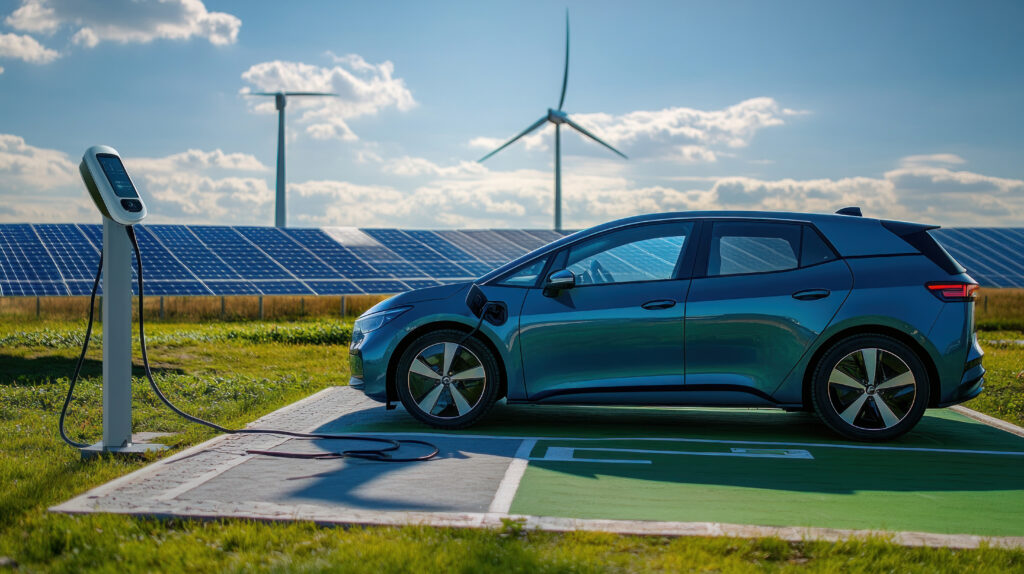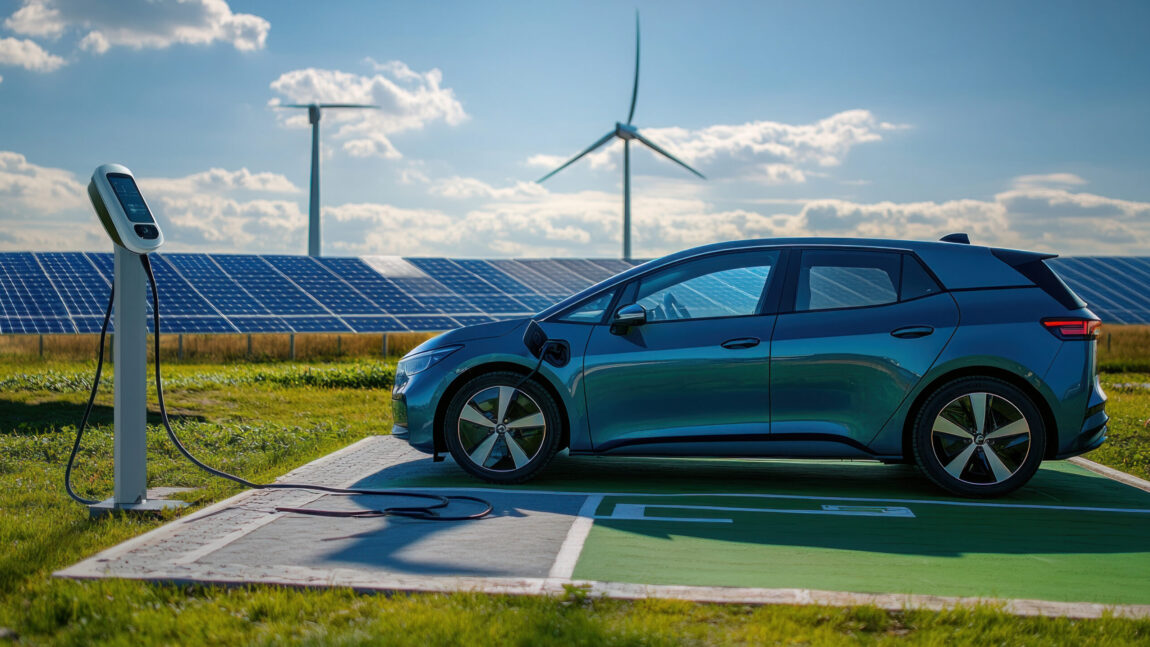Jaideep Saraswat, Nikhil Mall

In the quest for a greener, more sustainable future, the path from traditional methods to cutting-edge solutions often requires stepping stones: transitional or compromising technologies. These technologies manifest across various sectors, including energy, transportation, and manufacturing. Examples encompass the shift from coal to natural gas before fully embracing renewable energy sources, the development of semi-solid electrolytes as a step toward solid-state batteries, the production of blue hydrogen as an interim solution before green hydrogen becomes economically viable, and more.
These technologies provide immediate benefits by mitigating environmental impacts to some extent, addressing technical challenges, and navigating economic and infrastructural constraints. They allow industries and societies to make incremental progress rather than waiting for ideal end-state solutions, which may still be years away.
However, not all transitional technologies are created equal. While some may play a crucial role in accelerating change, others may serve as stopgaps that offer limited value in the larger scheme of things. Worse yet, certain technologies are supported by industries as a means of delaying the inevitable transition to more sustainable alternatives, leveraging these “in-betweens” to drag their feet and postpone substantial investments.
To make wise decisions, it’s essential to evaluate these technologies based on their long-term compatibility with climate goals, their cost-effectiveness, and their technical and commercial readiness for large-scale deployment. Investing in transitional technologies that align with the end solution can reduce risks and ensure resources aren’t wasted. However, those that do little more than prolong reliance on outdated systems may not justify the investment.
This blog explores in detail one of the transitional technologies, i.e., hybrid vehicles. We examine their role in the transportation sector, their current status, and their limitations compared to fully Electric Vehicles (EVs), illustrating why not all compromises are created equal.
Examining Growth of Hybrid Vehicles
Hybrid vehicles, which integrate internal combustion engines (ICE) with electric propulsion systems, are often considered a transitional technology in the automotive industry. Their adoption has been steadily increasing worldwide. By 2029, the hybrid vehicle market is projected to grow to approximately USD 478 billion, up from USD 231 billion in 2024[1].
Countries like the U.S.A and China have seen notable growth in hybrid vehicle sales. In China, the hybrid vehicle penetration rate soared nearly fourfold, from 5.3% in 2021 to 19.9% in the first half of 2024[2]. Similarly, India experienced an increase in hybrid vehicle penetration from 4.4% in 2022 to 7% in 2023[3]. The rising popularity of hybrid vehicles has also influenced policy decisions, with some state governments introducing incentives to promote their adoption. For example, the Uttar Pradesh government has recently proposed waiving registration charges for hybrid vehicles, reducing their upfront cost[4]. Meanwhile, Haryana is providing subsidies for the first 200 hybrid vehicles purchased and registered in the state, covering 15% of the ex-showroom price, up to a maximum of INR 5 lakhs[5]. This initiative further reduces the initial financial burden on consumers.
While hybrid vehicle sales continue to climb, the growth in EV sales has slowed. This trend suggests that hybrid vehicles are benefiting from increasing awareness of climate change and environmental sustainability. According to the Mobility Consumer Index, 48% of U.S. consumers expressed willingness to replace their ICE vehicles with EVs[6] in 2023, but this number dropped to 34% in 2024[7].
Why Hybrid Vehicles are not the ideal solution?
Despite their advantages, hybrid vehicles lag behind EVs in several areas:
- TCO Ownership– Hybrid vehicles once offered a cost-effective alternative to EVs, but this is no longer the case. The significant reduction in battery prices[8] over the years, coupled with innovative business models like Battery-as-a-Service (BaaS)[9], has made EVs much more accessible. Today, owning an EV is more economical than owning a hybrid, especially when factoring in lower running and maintenance costs over time.
- Range and Range Anxiety– Range anxiety has traditionally been a barrier for EV adoption. However, this concern is largely overstated, particularly in countries like India, where the average daily trip distance is between 27-33 kilometers[10]—well within the range of most EVs. For infrequent long-distance travel, advancements in battery technology are addressing these concerns. Some EV models equipped with semi-solid state batteries now offer ranges exceeding 1,000 kilometers[11], with more options expected in the near future in the affordable segment.
- Limited Focus for Leading Automakers- Major players like Maruti Suzuki, which dominates 42% of the Indian automobile market has been slow to embrace EVs. Maruti Suzuki has yet to launch an EV in India. Companies are heavily investing in hybrid technology, essentially prolonging the use of ICE systems with minor modifications, instead of making significant strides toward electrification.
- Environmental Impact: While hybrid vehicles emit less CO₂ than conventional ICE vehicles, they are far from emission-free. According to the International Energy Agency (IEA), a typical hybrid car produces 36.9 tons of CO₂-equivalent over a 15-year lifespan, only 32% less than an ICE vehicle. By contrast, a battery EV with a 300 km range produces just 25.0 tons, 54% less than an ICE vehicle and 32% less than a hybrid[12]. Moreover, as renewable energy increasingly powers electricity grids—especially in India, which is rapidly expanding renewable energy capacity—EVs will become even greener over time. Hybrid vehicles, however, will continue to emit pollution throughout their lifetime.
- Energy Efficiency: EVs convert a higher percentage of energy from the grid to power at the wheels compared to hybrids, leading to greater overall efficiency.
- Maintenance: Hybrids have complex systems combining ICE and electric components, potentially leading to higher maintenance costs and challenges compared to the simpler mechanics of EVs.
A rapid and direct transition to sustainable transportation is essential to address the climate crisis effectively. Hybrid vehicles, while serving as a transitional solution, fail to deliver on critical fronts, including cost, environmental impact, and long-term efficiency. The future lies in the widespread adoption of EVs, which promise superior benefits for both the environment and consumers. Investing in hybrids today risks delaying the inevitable shift to cleaner and more efficient EV technology.
[1] https://www.mordorintelligence.com/industry-reports/hybrid-vehicle-market
[2] https://www.business-standard.com/industry/auto/hybrid-car-sales-soar-as-global-policies-boost-electric-vehicle-market-124093000281_1.html
[3] Vahan Dashboard
[4] https://www.indiatoday.in/information/story/no-registration-fees-for-hybrid-cars-in-uttar-pradesh-price-reductions-expected-2564762-2024-07-10
[5] https://investharyana.in/content/pdfs/EV%20Policy%202022.pdf
[6] Pure EVs
[7] https://qz.com/hybrid-vehicle-popular-ev-demand-ford-toyota-hyundai-ey-1851643115
[8] https://www.goldmansachs.com/insights/articles/electric-vehicle-battery-prices-are-expected-to-fall-almost-50-percent-by-2025
[9] https://www.mgmotor.co.in/vehicles/windsor-ev-electric-car-in-india/baas-faq
[10] https://www.orfonline.org/expert-speak/road-emission-control-electrifying-personal-mobility-in-india#:~:text=The%20average%20daily%20distance%20travelled,a%20maximum%20of%2022%2C500%20km.
[11] https://www.nio.com/et7?&noredirect=
[12] https://www.iea.org/data-and-statistics/data-tools/ev-life-cycle-assessment-calculator




